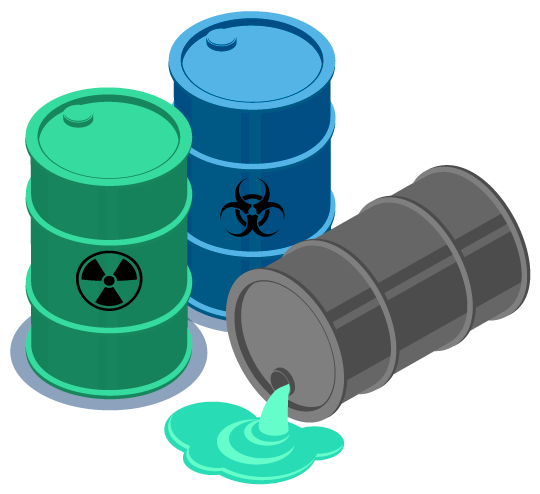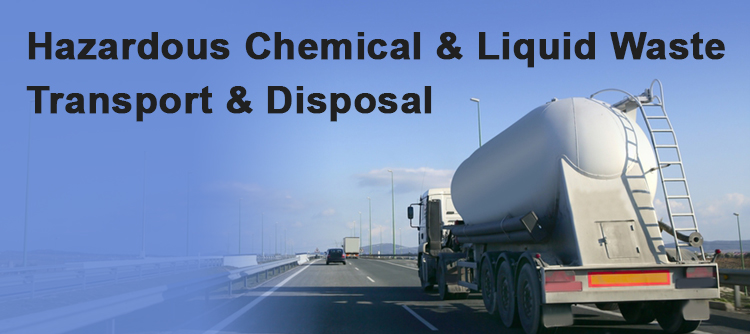Safe and Lasting Liquid Waste Disposal: Your Go-To Provider
Safe and Lasting Liquid Waste Disposal: Your Go-To Provider
Blog Article
Comprehending the Comprehensive Refine of Fluid Garbage Disposal: Finest Practices and Environmental Effect Factors To Consider
The monitoring of fluid waste disposal is a multifaceted issue that needs a complete understanding of different ideal methods and their associated environmental influences. From the types of fluid waste generated to the techniques employed for collection, treatment, and last disposal, each action plays an important role in securing communities and public wellness.
Types of Liquid Waste
Recognizing the various types of fluid waste is important for reliable management and disposal methods. Fluid waste can be broadly categorized right into numerous types, each needing unique handling and treatment techniques.
Industrial fluid waste frequently consists of hazardous materials, including hefty steels, solvents, and chemicals, generated during manufacturing processes. These wastes require rigorous regulatory compliance to safeguard human health and wellness and the setting. Residential liquid waste mainly refers to wastewater produced from families, consisting of sewer and greywater, which, although much less toxic, can still position significant risks if improperly managed.
Agricultural fluid waste, including overflow from farms, commonly has plant foods and chemicals that can lead to ecological deterioration otherwise treated properly. Medical fluid waste, created from medical care centers, consists of polluted liquids such as physical liquids and chemicals, calling for specialized disposal methods to avoid infection and ecological contamination.
Finally, oil and grease waste, typically generated by dining establishments and automotive sectors, can cause serious obstructions in sewage system systems if not managed correctly. Comprehending these groups helps with targeted methods for therapy, compliance with policies, and efficient disposal methods, ultimately promoting ecological sustainability and public wellness safety and security.

Collection Techniques
Efficient collection approaches are crucial for the proper administration of liquid waste, ensuring that it is collected securely and effectively prior to therapy or disposal. Numerous techniques are utilized depending on the sort of liquid waste created, the volume, and the certain features of the waste.
One usual approach is making use of specialized collection storage tanks or sumps, which are designed to catch liquid waste at the source. These systems usually include pumps that facilitate the transfer of waste to larger storage space containers or therapy facilities. In addition, mobile collection devices outfitted with vacuum innovation are used in circumstances where waste is created periodically or in hard-to-reach areas.
For commercial settings, closed-loop systems can properly lessen leaks and spills, enabling the recovery and reuse of fluid waste. It is also necessary to train employees on appropriate collection methods to minimize dangers linked with harmful substances.
Additionally, implementing routine maintenance schedules for collection devices makes sure ideal efficiency and safety and security. The assimilation of sophisticated surveillance systems can improve collection performance by offering real-time data on waste levels and possible risks. Generally, effective collection approaches are foundational to sustainable liquid waste monitoring methods.
Treatment Processes
Therapy procedures play an essential duty in the management of liquid waste, transforming possibly hazardous materials into safe effluents or recyclable resources - liquid waste disposal. These procedures can be extensively classified right into physical, chemical, and organic techniques, each customized to resolve specific pollutants present in the waste stream
Physical treatment methods, such as sedimentation and purification, work by click over here removing put on hold solids and particulate issue. These strategies are often the very first step in the therapy chain, successfully lowering the load on subsequent processes. Chemical treatments include making use of reagents to counteract hazardous materials, speed up heavy metals, or oxidize organic contaminants, therefore improving the safety and security of the effluent.
Biological therapy processes, including activated sludge systems and anaerobic digestion, profit from the natural abilities of microorganisms to deteriorate organic matter. These methods are especially efficient for wastewater consisting of biodegradable pollutants. Advanced therapy technologies, such as membrane layer filtering and progressed oxidation processes, are increasingly utilized to attain higher levels of purification.
Incorporating a mix of these treatment approaches not just makes sure conformity with governing requirements however likewise promotes click to investigate environmental sustainability by recouping important resources from fluid waste.
Disposal Options
Just how can organizations guarantee the risk-free and accountable disposal of liquid waste? Efficient disposal options are important for protecting public wellness and the setting. The key methods include land therapy, incineration, and disposal followed by discharge right into local wastewater systems.
Land disposal involves the cautious containment of fluid waste in assigned land fills, making certain that it does not leach right into bordering soil or water. Incineration, on the other hand, topics fluid waste to heats, converting it right into ash and gases, which call for proper filtration to decrease emissions. This technique is suitable for harmful wastes that can not be dealt with through traditional means.
In cases where fluid waste can be treated, organizations might select organic or chemical therapy processes to reduce the effects of dangerous parts before discharging the dealt with effluent into metropolitan systems. This route generally lines up with regulatory demands, ensuring that the effluent satisfies safety requirements.
Ultimately, companies should carry out thorough evaluations of each disposal option to identify its practicality, taking into consideration factors such as waste composition, governing conformity, and prospective dangers to wellness and the setting. By picking appropriate disposal techniques, companies can contribute to a responsible waste administration method.
Environmental Impact
The ecological impact of liquid waste disposal is an essential consideration for read the article organizations seeking to lessen their eco-friendly footprint. Additionally, the discharge of unattended or improperly treated waste into surface waters can result in eutrophication, leading to oxygen depletion and the subsequent death of fish and other organisms.

To minimize these effects, companies have to take on finest techniques such as applying strenuous waste therapy processes, promoting recycling and reuse, and sticking to governing requirements. By taking a positive method to liquid waste monitoring, entities can dramatically minimize their environmental impact while sustaining sustainable development objectives. Eventually, an extensive understanding of the ecological effects connected with liquid waste disposal is essential for educated decision-making and accountable stewardship of natural sources.
Final Thought
Reliable management of liquid waste is vital for protecting ecological integrity and public health. Inevitably, an extensive understanding of liquid waste disposal not only alleviates ecological impacts yet likewise cultivates a dedication to responsible resource management and environmental stewardship.
The administration of fluid waste disposal is a complex concern that requires a complete understanding of numerous ideal practices and their associated environmental impacts. From the types of liquid waste generated to the methods employed for collection, treatment, and final disposal, each step plays a vital function in securing ecological communities and public wellness.The ecological influence of fluid waste disposal is a critical factor to consider for companies looking for to decrease their environmental footprint. Eventually, a detailed understanding of the environmental impacts connected with liquid waste disposal is important for informed decision-making and responsible stewardship of all-natural sources.
Eventually, an extensive understanding of liquid waste disposal not only mitigates ecological effects however also fosters a dedication to accountable resource management and ecological stewardship.
Report this page